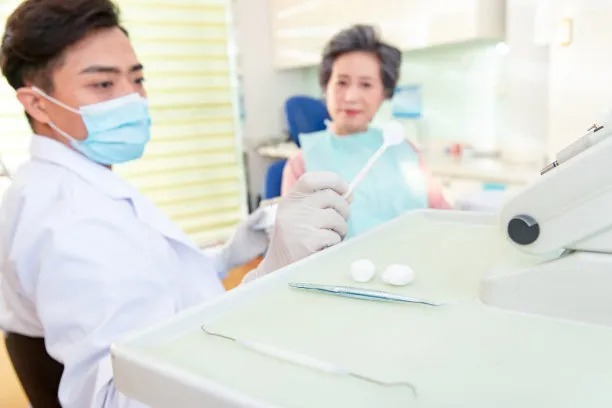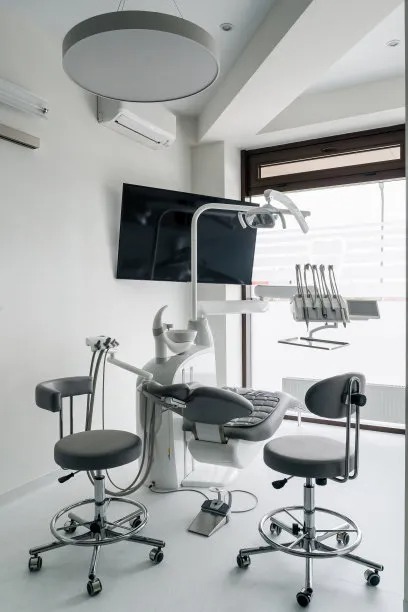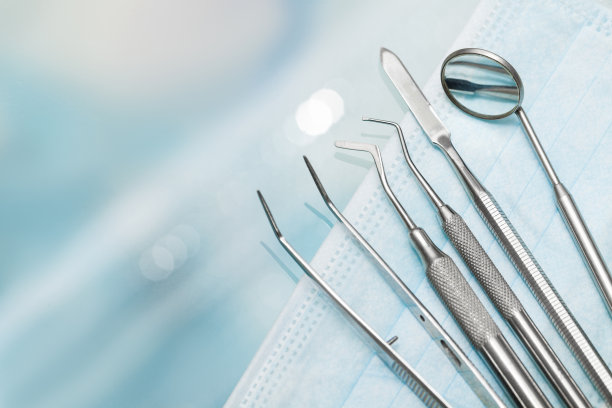Summary: Dental implantation is a reliable and effective procedure that can transform the quality of life for many patients. However, the success of this treatment hinges on various essential precautions before, during, and after the surgery. This article delves into critical considerations for ensuring a successful dental implantation procedure and a smooth recovery. It highlights the significance of choosing a qualified practitioner, understanding the pre-operative requirements, adhering to post-operative care instructions, and maintaining long-term oral hygiene. By focusing on these pivotal aspects, patients can significantly enhance the likelihood of a successful outcome and enjoy lasting dental health.
1. Choose a Qualified Dental Practitioner

The first and foremost step in ensuring a successful dental implantation procedure is selecting a qualified dental practitioner. It is vital to conduct thorough research on the credentials and experience of a dentist. Check whether the practitioner has specialized training in implant dentistry and ask for before-and-after pictures of previous cases.
Additionally, consider reading reviews and testimonials from previous patients to gauge their experiences. Its essential to feel comfortable with the dentist, as a good practitioner will communicate effectively and address any concerns you may have regarding the procedure.
Lastly, ensure that the dental clinic is equipped with advanced technology and follows up-to-date safety protocols. A clinic adhering to high hygiene standards can prevent potential infections, increasing the chances of success.
2. Understand Pre-Operative Requirements Thoroughly
Preparation for dental implantation involves understanding and adhering to several pre-operative requirements. First, patients should schedule a comprehensive dental examination, which often includes X-rays or 3D imaging to assess bone density and to determine the precise location for implantation.
Additionally, its crucial to discuss medical history with the practitioner, including current medications and allergies. Some medications may need to be adjusted or temporarily discontinued to minimize complications during the procedure.
Moreover, maintain a balanced diet leading up to the surgery, as proper nutrition aids in recovery. Staying hydrated is equally important, as it promotes good oral health and enhances the bodys ability to heal following the operation.
3. Follow Post-Operative Care Instructions Advised by the Dentist
After the dental implantation, following post-operative care instructions is essential for a seamless recovery. Patients should closely adhere to the dentist’s recommendations regarding pain management and medication. Taking prescribed antibiotics as directed will help prevent infections, which can jeopardize the healing process.
Furthermore, be mindful of diet after surgery; it is advisable to consume soft foods and avoid crunchy or hard items that might disturb the surgical site. Practicing good oral hygiene is crucial, but its important to take extra care around the implant site to avoid irritation.
Monitoring the surgical area for any sign of swelling or unusual pain is necessary. If complications arise, contact the dental office immediately to address any issues before they escalate. Regular follow-ups with the dentist are also imperative for assessing healing and ensuring the implant is positioned correctly.
4. Maintain Long-Term Oral Hygiene Practices
Long-term success with dental implants depends heavily on maintaining excellent oral hygiene practices. Brushing teeth twice daily and flossing are fundamental to preventing plaque buildup and ensuring that the gum tissue remains healthy around the implant.
Incorporating antibacterial mouthwash into your oral care routine can help reduce the risk of gum disease, which is crucial for the longevity of dental implants. Regular professional cleanings at the dentist’s office are also pivotal, as they can remove tartar and allow for early detection of potential issues.
Lastly, its beneficial to avoid habits such as smoking, as it can impede healing and increase the risk of implant failure. Consistently attending dental check-ups every six months will allow your dentist to monitor the implant’s integrity and your overall oral health, which is essential for long-term success.
Summary:
In conclusion, the journey of ensuring a successful dental implantation involves careful planning and commitment. From choosing a qualified practitioner to understanding and adhering to pre-operative and post-operative care instructions, each step is integral to achieving favorable results. Furthermore, maintaining diligent oral hygiene practices will lend to the longevity of your dental implants. With proper precautions in place, patients can enjoy a restored smile and overall improved quality of life.
This article is compiled by Vickong Dental and the content is for reference only.
Vickong Dental
Vickong Dental is a large medical group established in Hong Kong in 2008 by professors from well-known medical universities in Guangdong and Hong Kong, as well as medical doctors from key national '985' universities (including Master's supervisors and senior professors). The chain of branches brings together expert dentists with PhDs and Master's degrees from Hong Kong and Mainland China, committed to providing high-quality dental treatment.
"Vickong Dental Practices the University Motto of 'Healing and Serving Society,' with a Stable Operation for Sixteen Years. It Has Been honored with Hong Kong Enterprise Leaders's Choice,' and is a Global Trusted Implant Center for the Nobel Implant System. Recommended by Hong Kong Metro Broadcast and Guangdong Television, it Serves Customers from Over Thirty Countries and Regions, Gaining the Trust and Favor of Citizens from the Guangdong-Hong Kong-Macau Greater Bay Area and Surrounding Cities.

Thousands of customers' unanimous praise
The most recognized and highly recommended dental service by customers in the Guangdong-Hong Kong-Macau Greater Bay Area
We Ensure You Receive Detailed Care and Attention Here
Hong Kong standards, Shenzhen prices, Your Trusted English-speaking dentists

Vickong Dental Medical-Grade Instrument Disinfection Process
Vickong Dental Medical-Grade Instrument Disinfection Process

Vickong Dental Chain: A Warm and Comfortable Environment for Treatment






Appointment Hours

Q&A
Why choose Vickong Dental?
Vickong Dental practices the university motto 「Medicine to Benefit Society」, with each branch bringing together highly qualified dentists with doctoral and master’s degrees from Hong Kong and the Mainland, and has maintained seventeen years of steady operation。Recipient of 「2024 Hong Kong Enterprise Leaders Brand」, 「2025 Hong Kong Enterprise Leaders Brand」, a Nobel Biocare Global Trusted Implant Center, and a brand recommended by Metro Radio Hong Kong and Guangdong TV。
To date, we have served customers from more than thirty countries and regions,earning exceptionally high word-of-mouth recognition and trusted recommendations from residents across the Guangdong-Hong Kong-Macao Greater Bay Area and surrounding cities
We have eight major branches in Zhuhai、Shenzhen,and a consultation and service assurance center in Hong Kong,so you can book a free consultation at any time for any questions,which is very reassuring.
If I do not accept the quotation after the CT scan, will I be charged??
No! As long as the actual treatment has not started, you will not be charged any fees.
Will there be any additional charges during the treatment process?
No, there won’t be any additional charges. Before treatment begins, we will clearly explain the treatment plan and its corresponding fees. Only after the patient agrees and signs the consent form will we proceed with the dental service.
Can I pay in Hong Kong dollars?
Yes. Vickong Dental accepts payment in Hong Kong dollars. The amount will be converted based on the exchange rate of the day, and the applicable rate will be clearly communicated to you in advance.
Can I reschedule my appointment at any time?
Yes. Please contact us via **WeChat** or **WhatsApp** as early as possible, providing your original appointment time and details, along with your preferred new date and time slot for rescheduling.













